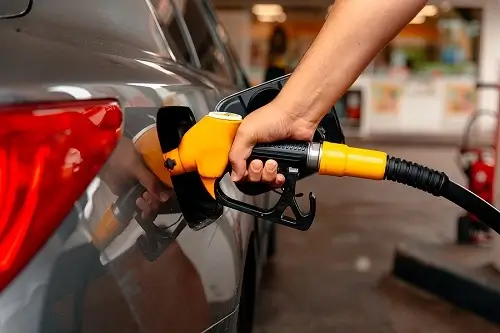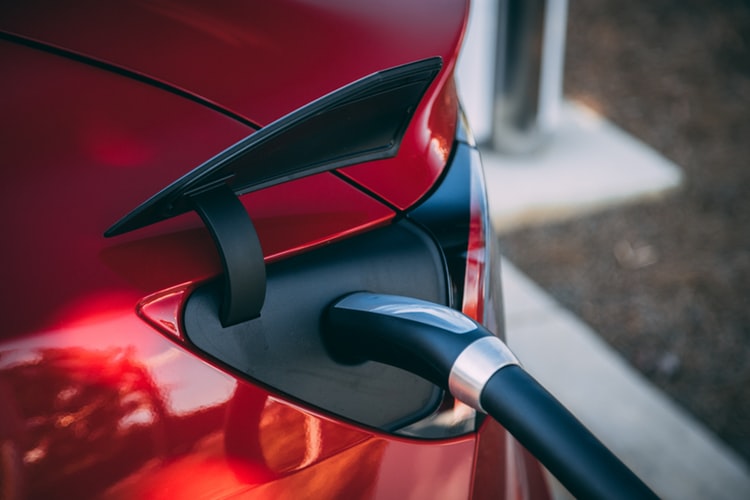Fuel Efficiency Boost Expert Strategies In an era where sustainability and economic prudence coexist as key priorities for the discerning driver, the pursuit of superior fuel efficiency has gained unprecedented importance. It’s a quest not just for economical savings at the pump but also for a reduced carbon footprint. This comprehensive guide explores a treasure trove of Expert Tips for Fuel Efficiency, offering Fuel Economy Enhancement Tactics, Fuel Efficiency Boost Expert Strategies, and unveiling Strategies to Boost Fuel Economy.
Decoding Fuel Efficiency
Before we dive into the realm of advanced fuel efficiency strategies, it’s crucial to understand the foundational principles that govern this multifaceted domain. Fuel efficiency is not a single-dimensional attribute but a nuanced interplay of various factors that shape a vehicle’s performance and fuel consumption. Key components that influence fuel efficiency include:
- Aerodynamics: The art of minimizing air resistance is fundamental to achieving optimal fuel efficiency. Streamlined designs reduce the drag coefficient, enabling vehicles to move through the air with minimal resistance.
- Engine Efficiency: The engine, often regarded as the heart of a vehicle, exerts significant influence over fuel efficiency. Modern engines leverage advanced technologies like direct injection, turbocharging, and variable valve timing to extract maximum power from the least amount of fuel.
- Weight Management: The weight of a vehicle directly impacts its energy consumption. Lighter materials and innovative engineering techniques are incorporated in modern vehicle construction to reduce overall weight, conserving fuel.
- Tire Technology: Tire selection and maintenance play a significant role in fuel economy. Opting for low rolling resistance tires minimizes the energy required to keep a vehicle in motion.
- Transmission Efficiency: Advanced transmissions, especially automatic ones with multiple gears, seamlessly shift to the most efficient gear, enabling vehicles to maintain a steady speed with minimal effort.
Now, let’s explore advanced techniques and strategies to enhance your vehicle’s fuel efficiency.
Expert Tips for Fuel Efficiency
1. Master Your Driving Habits
Your driving style significantly impacts fuel efficiency. By adopting these innovative techniques, you can elevate your vehicle’s fuel economy:
- Smooth Acceleration and Braking: Gradual acceleration and gentle braking result in less fuel consumption. A smoother driving style that maintains a consistent speed conserves energy.
- Cruise Control: On extended highway journeys, engage cruise control to maintain a constant speed. It surpasses human modulation of the throttle when it comes to fuel efficiency.
- Traffic Anticipation: Anticipate traffic flow by looking ahead to avoid unnecessary stops and starts, especially in congested urban areas. This practice can dramatically reduce fuel consumption.
2. Prioritize Vehicle Maintenance
Regular maintenance is pivotal for maintaining fuel efficiency. Neglecting your vehicle can lead to increased fuel consumption. Pay meticulous attention to these crucial maintenance tasks:
- Air Filter Replacement: A clogged air filter restricts airflow to the engine, making it work harder and consume more fuel. Regular air filter replacement ensures optimal engine performance.
- Spark Plug Care: Faulty spark plugs can lead to incomplete combustion, resulting in increased fuel consumption. Regularly inspect and replace spark plugs as needed.
- Tire Health: Proper tire maintenance, including regular inflation and alignment checks, significantly influences your vehicle’s fuel economy. Under-inflated tires increase rolling resistance, while misaligned tires create unnecessary drag.
3. Embrace Modern Technological Advancements
The automotive industry continually introduces cutting-edge technologies aimed at enhancing fuel efficiency. These innovations include:
- Hybrid and Electric Vehicles: Hybrid vehicles combine traditional internal combustion engines with electric motors to maximize fuel efficiency. Electric vehicles rely solely on electricity, eliminating the need for fuel.
- Start-Stop Systems: Many modern vehicles are equipped with start-stop systems that automatically shut off the engine when idling and restart it when you press the accelerator. This feature is particularly advantageous in stop-and-go traffic.
- Active Aerodynamics: Some vehicles are fitted with active aerodynamic features, such as adjustable spoilers, which optimize airflow and reduce drag for improved fuel economy.
Expert Tips for Fuel Efficiency
1. Master Your Driving Habits
Your driving style significantly impacts fuel efficiency. By adopting these innovative techniques, you can elevate your vehicle’s fuel economy:
- Smooth Acceleration and Braking: Gradual acceleration and gentle braking result in less fuel consumption. A smoother driving style that maintains a consistent speed conserves energy.
- Cruise Control: On extended highway journeys, engage cruise control to maintain a constant speed. It surpasses human modulation of the throttle when it comes to fuel efficiency.
- Traffic Anticipation: Anticipate traffic flow by looking ahead to avoid unnecessary stops and starts, especially in congested urban areas. This practice can dramatically reduce fuel consumption.
2. Prioritize Vehicle Maintenance
Regular maintenance is pivotal for maintaining fuel efficiency. Neglecting your vehicle can lead to increased fuel consumption. Pay meticulous attention to these crucial maintenance tasks:
- Air Filter Replacement: A clogged air filter restricts airflow to the engine, making it work harder and consume more fuel. Regular air filter replacement ensures optimal engine performance.
- Spark Plug Care: Faulty spark plugs can lead to incomplete combustion, resulting in increased fuel consumption. Regularly inspect and replace spark plugs as needed.
- Tire Health: Proper tire maintenance, including regular inflation and alignment checks, significantly influences your vehicle’s fuel economy. Under-inflated tires increase rolling resistance, while misaligned tires create unnecessary drag.
3. Embrace Modern Technological Advancements
The automotive industry continually introduces cutting-edge technologies aimed at enhancing fuel efficiency. These innovations include:
- Hybrid and Electric Vehicles: Hybrid vehicles combine traditional internal combustion engines with electric motors to maximize fuel efficiency. Electric vehicles rely solely on electricity, eliminating the need for fuel.
- Start-Stop Systems: Many modern vehicles are equipped with start-stop systems that automatically shut off the engine when idling and restart it when you press the accelerator. This feature is particularly advantageous in stop-and-go traffic.
- Active Aerodynamics: Some vehicles are fitted with active aerodynamic features, such as adjustable spoilers, which optimize airflow and reduce drag for improved fuel economy.
In conclusion : Fuel Efficiency Boost Expert Strategies
The journey to achieving superior fuel efficiency is a multifaceted endeavor that encompasses vehicle design, driving habits, maintenance, and the integration of advanced technologies. By weaving these elements together into a cohesive strategy, you can unlock the secrets to Expert Tips for Fuel Efficiency, discover a world of Fuel Efficiency Boost Expert Strategies, and implement Fuel Efficiency Boost Expert Strategies that lead to Strategies to Boost Fuel Economy. These techniques are the key to achieving ultimate fuel economy, resulting in an elevated level of vehicle performance and financial savings.
Whether you are a passionate automotive enthusiast seeking to maximize your vehicle’s fuel efficiency or a conscientious driver aiming to economize at the pump, the time for action is now. By implementing the strategies presented in this guide, you can embark on a journey to fuel efficiency mastery, experiencing the satisfaction of improved performance and financial savings. Don’t delay; begin your quest to become an expert in fuel efficiency today.






